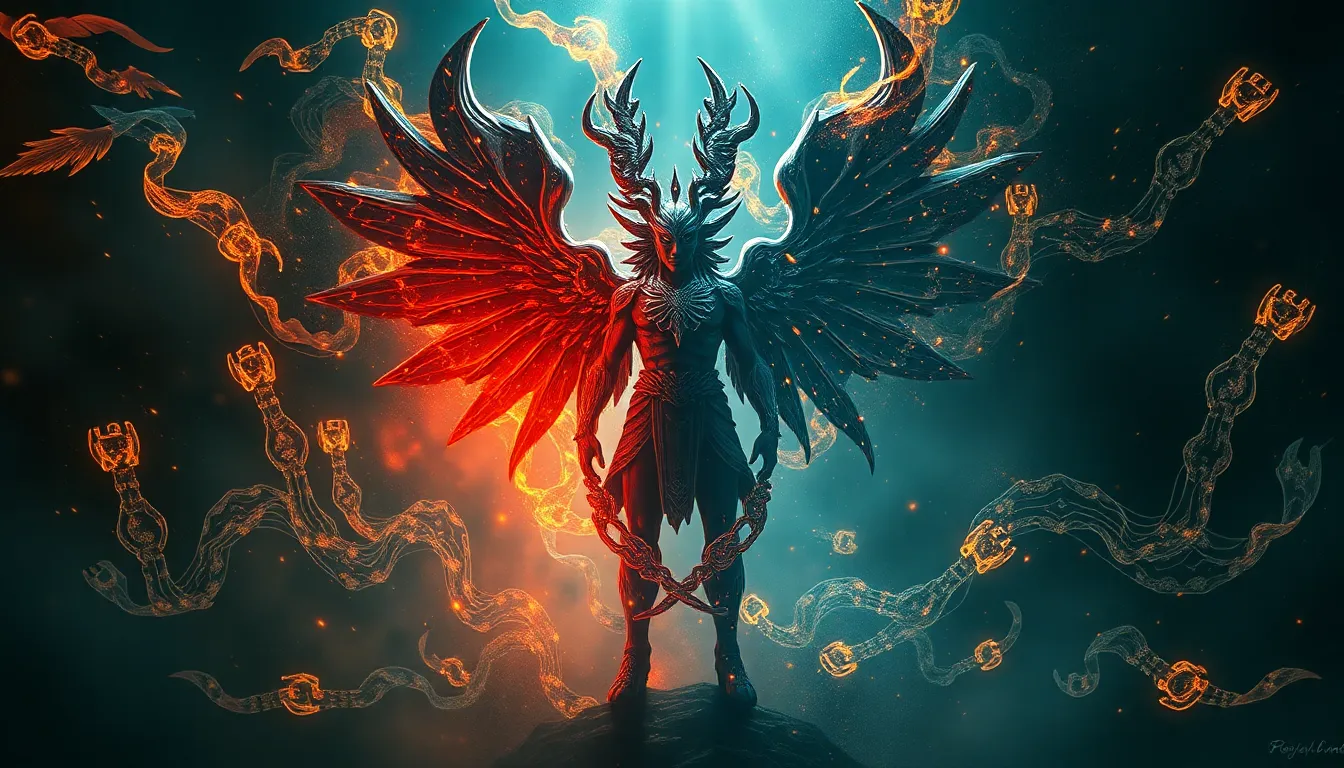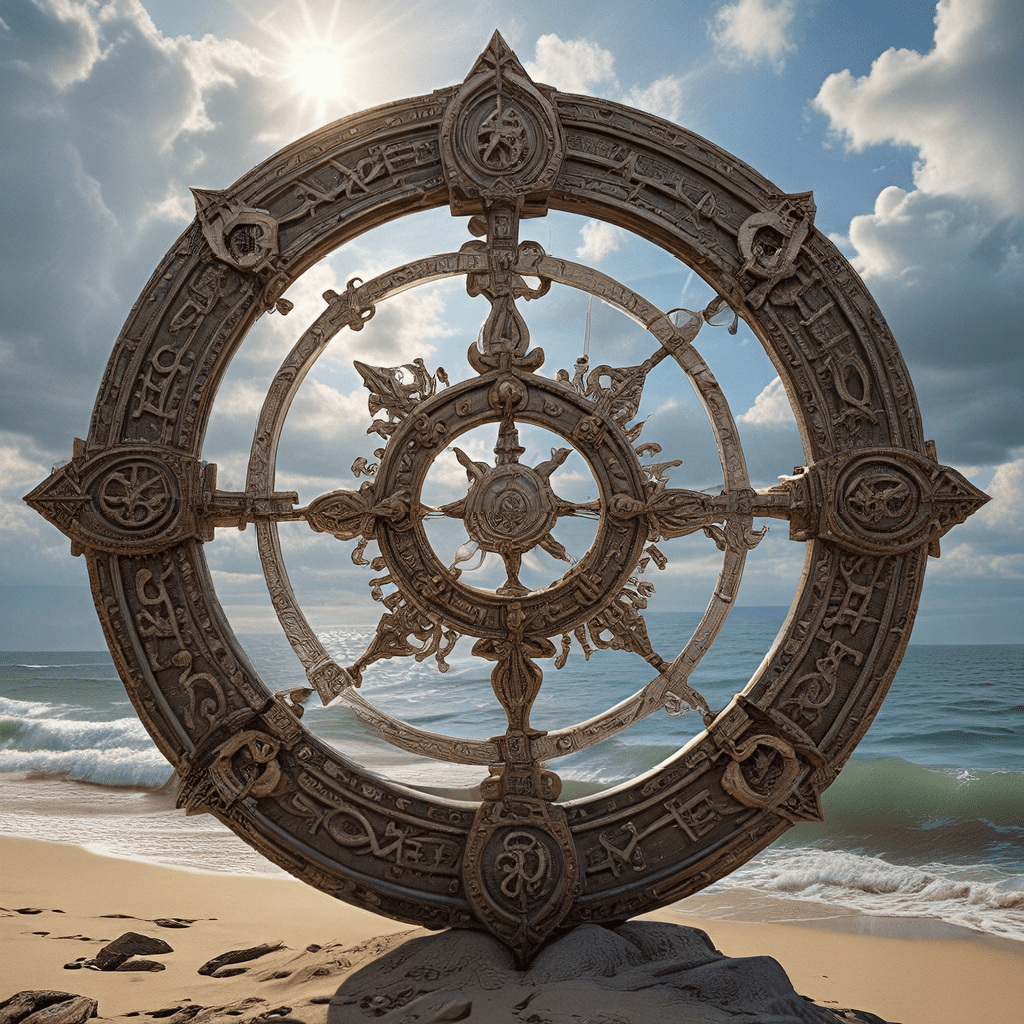Cultural Heroes: The Myths That Connect Cultures
Introduction to Cultural Heroes
Cultural heroes are figures that embody the values, beliefs, and ideals of a society, often represented in myths and legends. These heroes serve as a bridge between generations, providing a narrative that connects people to their history, culture, and identity. Throughout human history, myths have played a crucial role in shaping societies, imparting moral lessons, and fostering a sense of community. This article will explore the significance of cultural heroes, the myths that surround them, and how they connect cultures across the globe.
The Role of Myths in Society
Myths have been integral to human societies since time immemorial, serving various functions in different cultures. They are not mere stories but rather a reflection of collective values, fears, and aspirations.
- Historical significance: Myths often provide insights into the historical context of a culture, revealing how people understood their world.
- Identity and values: They shape personal and collective identities, instilling values that guide behavior and social norms.
- Common themes: Many myths share universal themes, such as the hero’s journey, creation myths, and stories of good versus evil, illustrating the shared human experience.
Cultural Heroes Across the Globe
Across various regions, cultural heroes emerge with unique stories and characteristics that reflect their respective cultures.
- Africa: Anansi, the spider trickster, is a beloved figure in West African folklore. Known for his cunning and intelligence, Anansi often teaches lessons about wisdom and morality through his adventures.
- Asia: Sun Wukong, or the Monkey King, is a central character in the Chinese classic “Journey to the West.” His rebellious spirit and extraordinary powers symbolize the quest for enlightenment and self-discovery.
- Europe: King Arthur and the Knights of the Round Table represent ideals of chivalry, honor, and bravery in British folklore. Their stories emphasize the importance of loyalty and justice.
- Americas: Quetzalcoatl, the feathered serpent deity, is a prominent figure in Mesoamerican cultures, embodying the duality of creation and destruction. Native American heroes, such as Hiawatha, also play vital roles in understanding community and harmony.
Despite their cultural differences, these heroes often share common traits such as bravery, intelligence, and a deep connection to their communities. Their stories resonate with universal themes, making them relevant across cultures.
Mythology as a Tool for Unity
Shared myths and cultural heroes can create a strong sense of belonging among people. They transcend regional boundaries and foster connections through storytelling.
- Shared myths: Myths like the flood narrative appear in many cultures, from the Epic of Gilgamesh to the Bible, illustrating common human experiences.
- Cultural heroes: Figures like Hercules or Gilgamesh are celebrated across cultures, symbolizing heroic virtues that resonate universally.
- Storytelling: The oral tradition of storytelling allows myths to be passed down, preserving culture and fostering understanding between diverse groups.
Modern Interpretations of Cultural Heroes
In contemporary society, cultural heroes are often reinterpreted through various media, impacting how they are perceived and understood.
- Popular culture: Films and books frequently adapt traditional myths, making them accessible to modern audiences. For example, Marvel’s Thor and Disney’s Mulan draw upon Norse and Chinese myths, respectively.
- Reinterpretations: Modern retellings often focus on themes of empowerment and diversity, reshaping the narrative around these heroes to reflect current societal values.
- Case studies: The character of Moana draws from Polynesian mythology, highlighting the importance of cultural heritage while appealing to contemporary themes of self-discovery and environmental stewardship.
The Psychological Impact of Cultural Heroes
Cultural heroes play a significant role in shaping human behavior and identity. They often embody archetypes that resonate deeply within the human psyche.
- Archetypes: Figures such as the hero, the mentor, or the trickster are prevalent across cultures, influencing how individuals perceive their own journeys.
- Influence on identity: Cultural heroes can inspire individuals to adopt certain values and behaviors, shaping both personal and collective identity.
- Psychological theories: Concepts such as hero worship illustrate how individuals project their aspirations onto these figures, seeking guidance and inspiration from their narratives.
Cultural Heroes in Conflict and Resolution
Myths often emerge during times of conflict, providing symbols of hope and resilience.
- Emerging myths: During crises, new heroes can arise, embodying the spirit of resistance or recovery.
- Symbols of hope: Figures like Nelson Mandela or Mahatma Gandhi serve as modern cultural heroes, representing the struggle for justice and peace.
- Community unity: Cultural heroes can unite divided communities, providing a common narrative that fosters reconciliation and understanding.
Cultural Appropriation vs. Appreciation
As cultures intersect, the line between cultural appropriation and appreciation can become blurred. It is essential to honor and respect the origins of cultural heroes.
- Borrowing vs. misrepresentation: It’s crucial to differentiate between respectful engagement with a culture and the exploitation of its symbols.
- Cultural ownership: Discussions around who can tell these stories highlight the importance of respecting the origins and meanings of cultural heroes.
- Best practices: Engaging with diverse mythologies should involve collaboration, consent, and a deep understanding of the culture from which the hero originates.
The Future of Cultural Heroes in a Globalized World
Globalization is reshaping the relevance of traditional heroes, introducing new narratives and heroes in the digital age.
- Impact of globalization: As cultures blend, traditional heroes may evolve or give way to new figures that reflect contemporary realities.
- Rise of new heroes: Digital platforms allow for the emergence of new heroes, such as activists and influencers, who resonate with modern audiences.
- Predictions: The evolution of storytelling will likely continue, blending ancient myths with current issues, resulting in heroes that reflect the complexities of a globalized society.
Conclusion: The Enduring Legacy of Cultural Heroes
Cultural heroes and their accompanying myths play a vital role in connecting cultures and shaping identities. They provide a narrative framework through which societies can understand their past and envision their future. As we navigate an increasingly interconnected world, the stories of these heroes continue to resonate, serving as beacons of hope, resilience, and unity. It is our responsibility to honor and respect these narratives, ensuring that the legacy of cultural heroes endures for generations to come.




